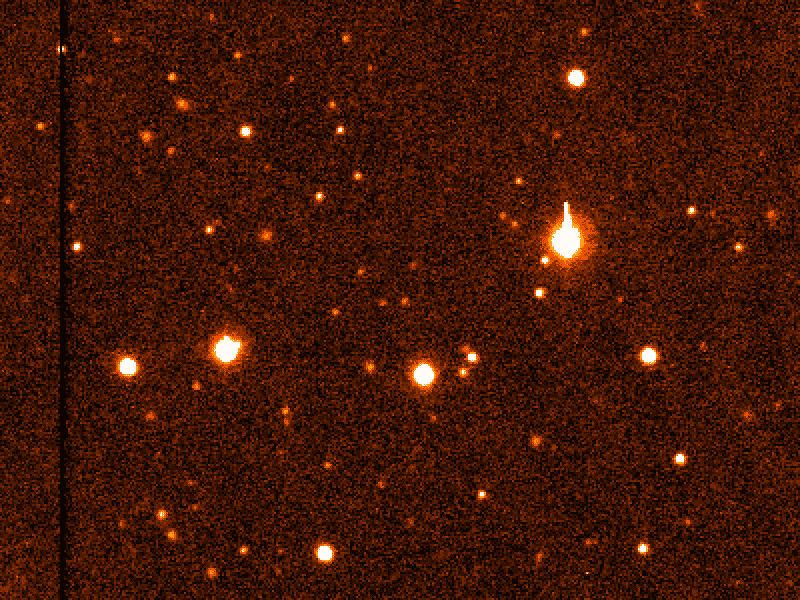
|
Credit & Copyright: M. Brown
(Caltech),
C. Trujillo
(Gemini),
D. Rabinowitz
(Yale),
Samuel Oschin Telescope
Explanation:
A newly discovered object in the outer Solar System moves like an anti-Pluto.
90482 Orcus was
first discovered
in 2004 and is slightly smaller than
Pluto, although still one of the largest
Kuiper belt
objects known.
Orcus may one day have the same
IAU designation as Pluto: a
dwarf planet.
Orcus and Pluto have similar orbits: each achieves nearly the same
maximum and minimum distances
from the Sun,
each orbits
on a similarly shaped ellipse,
and each orbital ellipse is tilted toward the other planets' orbital
ellipse by roughly the same angle.
The great mass of
Neptune causes each to circle the Sun twice for every three Neptune orbits.
Orcus
is like an
anti-Pluto,
however, because the two objects always remain across the
Solar System
from each other.
Orcus
can be found as the spot near the center of these
discovery frames moving slightly down from the top.
Until the end of next week, the discoverers of Orcus
ask for your help in naming
its newly discovered moon.
|
January February March April May June July August September October November December |
| |||||||||||||||||||||||||||||||||||||||||||||||||||||||
NASA Web Site Statements, Warnings, and Disclaimers
NASA Official: Jay Norris. Specific rights apply.
A service of: LHEA at NASA / GSFC
& Michigan Tech. U.
Based on Astronomy Picture
Of the Day
Publications with keywords: kuiper belt
Publications with words: kuiper belt
See also:
